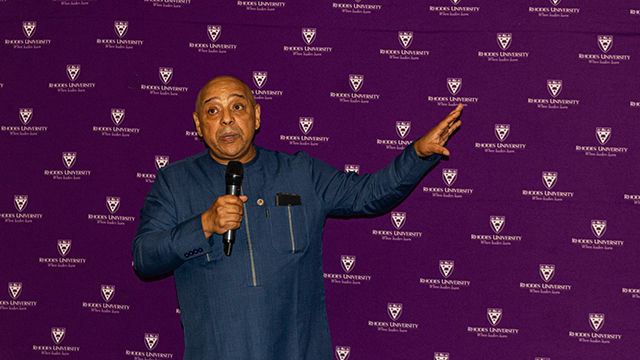
[AFRICA MONTH] Mobilising domestic resources for Africa’s sustainable development path
As the opening to Rhodes University's Africa Month celebrations, coordinated by the Global Engagement Division (GED), Logan Wort, Executive Secretary of the African Tax Administration Forum (ATAF), delivered a compelling public keynote address, urging African nations to strengthen their fiscal sovereignty by mobilising domestic resources and reducing reliance on foreign aid.
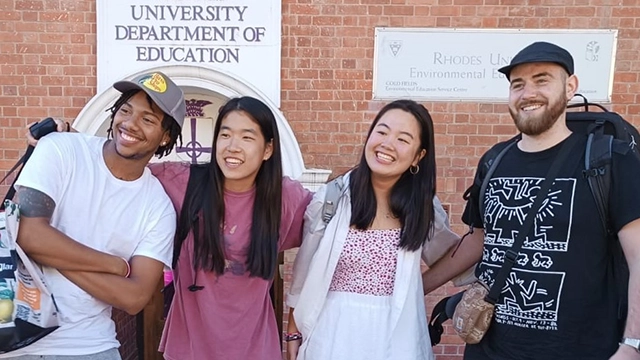
International students reflect after memorable semester at Rhodes University
As the semester ends, we bid farewell to our semester-abroad students from Boston College, Hobart and William Smith Colleges (HWS), and Pädagogische Hochschule Bern (PH Bern).
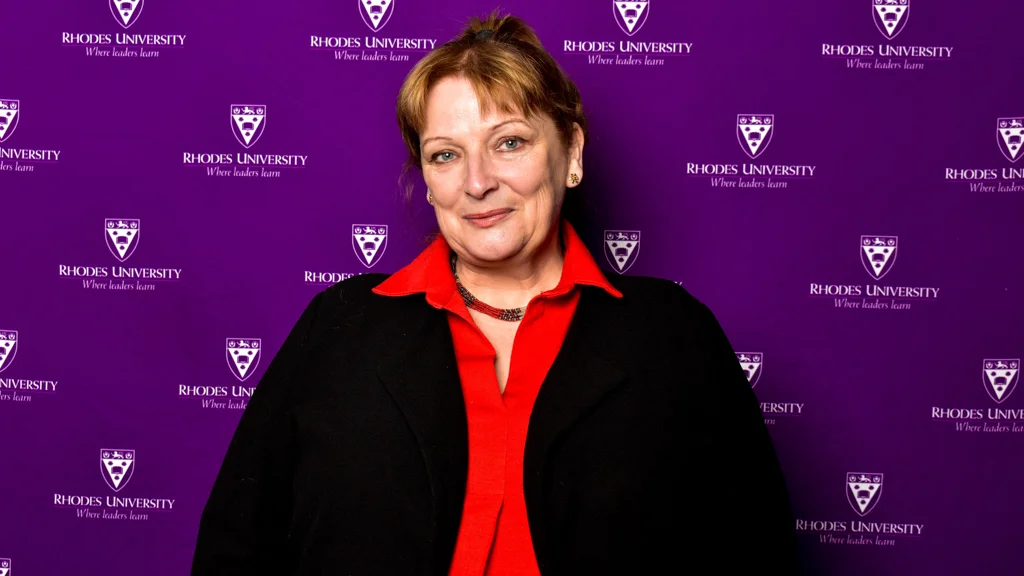
How to lead international HE in a volatile, uncertain world
The Global Leadership Summit held on 22 August in Durban, South Africa, brought together leaders of international education from numerous countries around the world to discuss the most pressing issues currently facing international higher education in a volatile, uncertain, complex and ambiguous world.
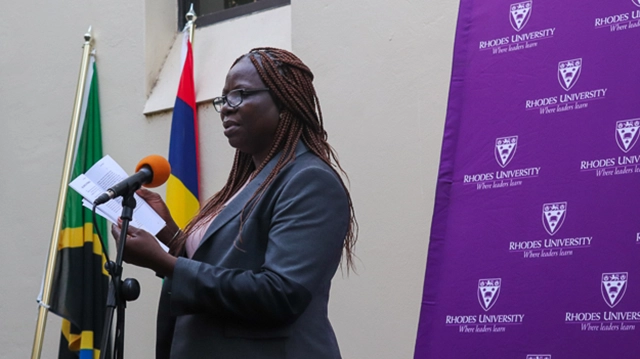
African women authors take centre stage
Students, members of the Ink Society and staff at Rhodes University recently participated in an open mic event in celebration of Women's Month. The event, themed "Celebrating African Women Writers", was to honour and shine a light on African women authors.
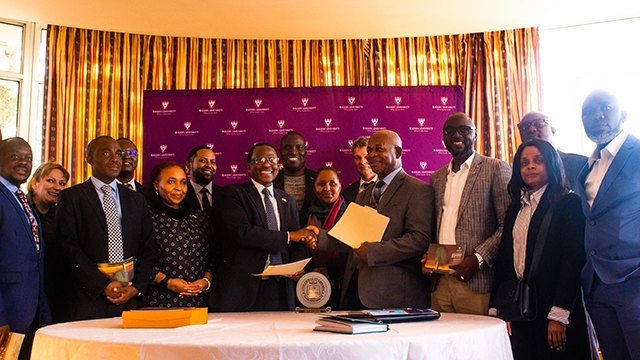
Rhodes University welcomes distinguished Liberian delegation and cements future partnerships
Professor Cliff Jones, Rhodes University Head of the Department of Ichthyology and Fisheries Science (DIFS), an African Centre of Excellence, accompanied by Professor ‘Mabokang Monnapula-Mapesela, Deputy Vice Chancellor of Academic and Students Affairs, recently welcomed a large delegation from Liberia on their arrival to Rhodes University.
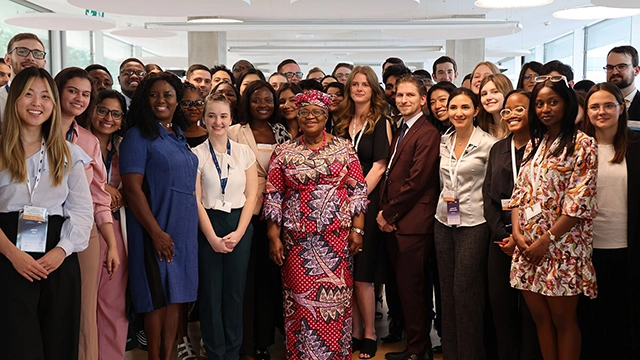
Rhodes University Law students shine in Geneva
A team of four final-year Rhodes University Faculty of Law students boarded a 13-hour flight to Geneva, Switzerland, to participate in the prestigious John H Jackson International Trade Law Moot Court Competition.
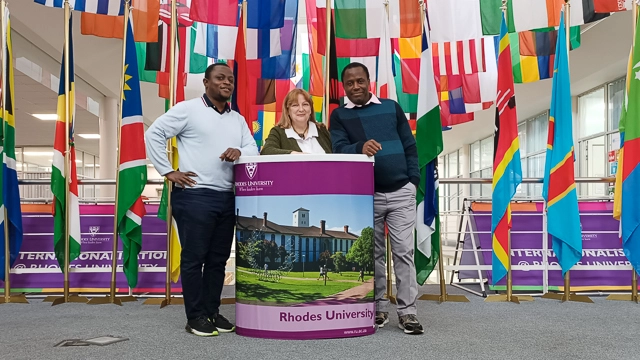
African Humanities Programme Fellows plan future involvement with Rhodes University
Rhodes University is currently hosting fellows from the last African Humanities Programme (AHP) cohort. Since 2009, the AHP has awarded fellowships to more than 450 early career scholars in Ghana, Nigeria, South Africa, Tanzania, and Uganda, with the generous support of the Carnegie Corporation of New York (CCNY). The programme that began in 2008-09 was due to conclude in 2020-21 but was extended due to delays caused by the COVID-19 pandemic.
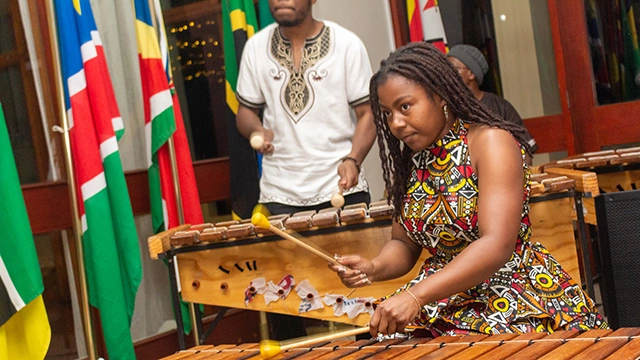
Rhodes University engages in several Internationalisation at Home activities during Africa Month
In May, Rhodes University dedicates a month-long celebration to Africa, encompassing International Week and culminating in Africa Day on the 25th. In response to a call from the Rhodes University International Office, numerous departments collaborated and organised activities, exhibitions and displays independently to acknowledge and celebrate Africa Month.
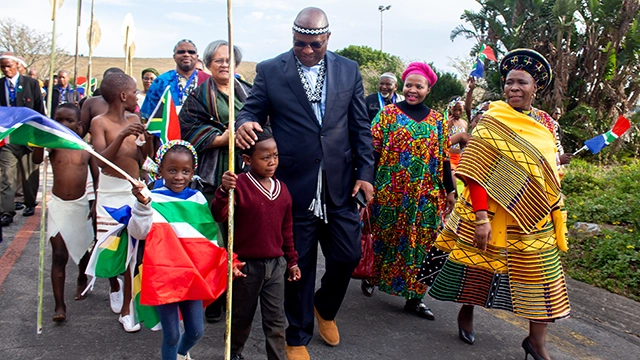
Rhodes University celebrates Africa Day with the broader community
Africa Day (25 May 2023) was broadly acknowledged on campus, with an exhibition in the English Department, displays on each floor of the Library and campus screens rotated interesting facts about every single country in Africa, to educate the whole community.
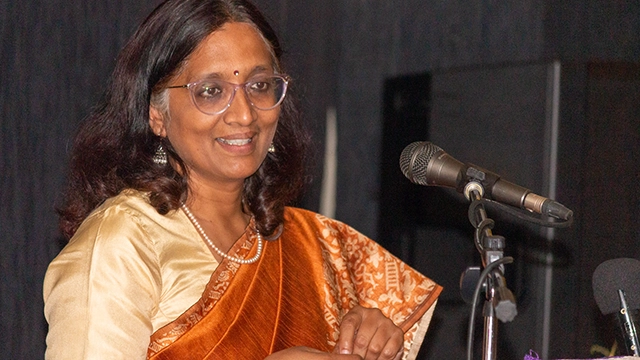
Internationalisation Awards: Rhodes University and Makhanda as “Sthana Bala”; a place that gives you strength and purpose
Guests to the Internationalisation Awards event held in early May were welcomed by the uplifting sounds of a Rhodes University ensemble from the International Library of African Music (ILAM), led by Mr Elijah Madiba.
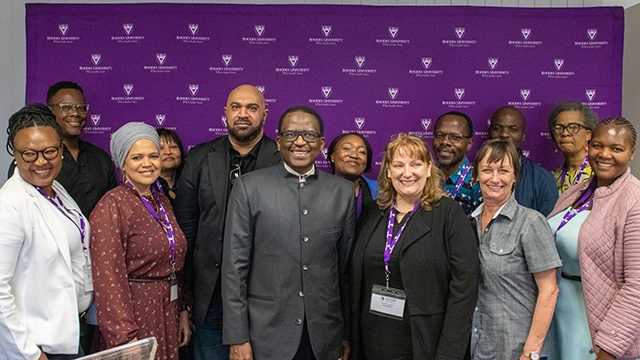
Rhodes University hosts IEASA Director’s Forum and IEASA’s first face-to-face Silver Jubilee celebration
Rhodes University’s International Office recently hosted the International Education Association of South Africa’s (IEASA) Director Forum, the advisory body of IEASA. It was the first face-to-face event of the year of IEASA’s silver jubilee.
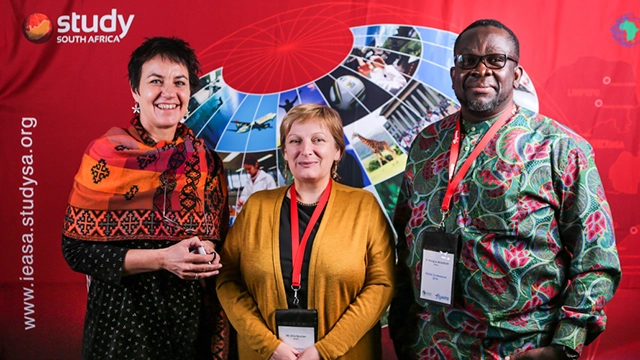
Rhodes University reflects on its contribution to the International Education Association of South Africa during silver jubilee
The International Education Association of South Africa (IEASA), the leading and only national organisation dedicated to higher education internationalisation in South Africa, is celebrating its 25th anniversary in 2023.
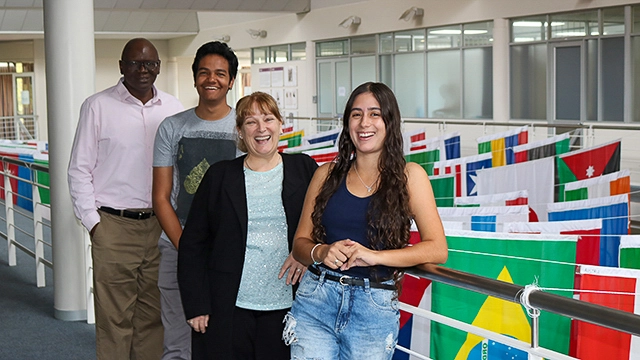
Rhodes University and University of São Paulo embark on knowledge exchange programme
Two students from the Institute of Physics at the University of São Paulo, Brazil, are visiting Rhodes University on a staff-student exchange programme to learn more about the luminescence properties of natural Brazilian minerals.
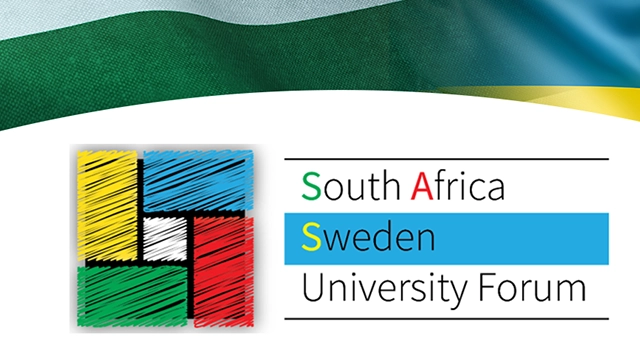
Rhodes University shines at SASUF Research and Innovation Week 2023
The South Africa Sweden University Forum (SASUF), of which Rhodes University is a member, recently held its Research and Innovation Week 2023. Several Rhodes University academics and executives participated.
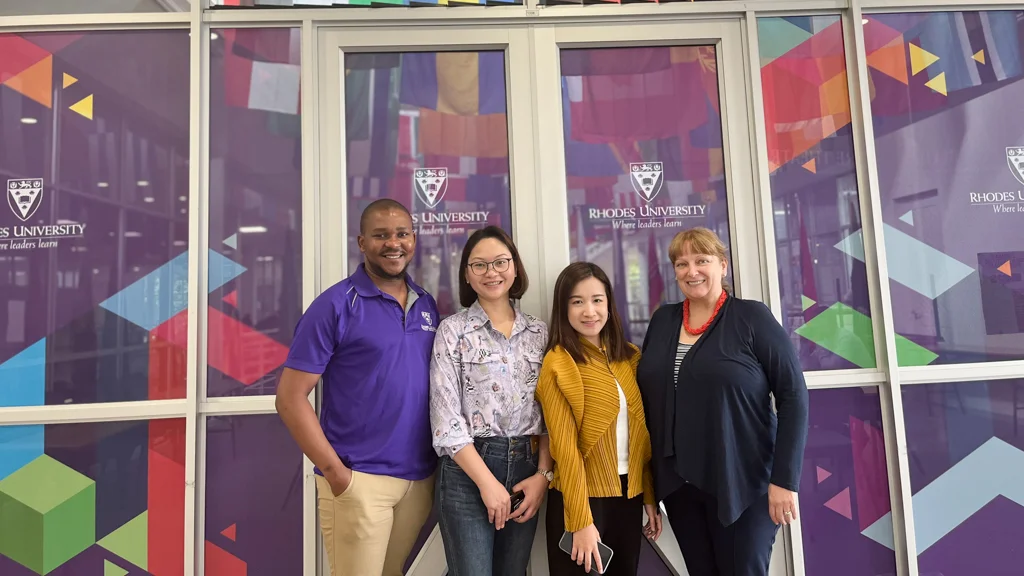
Intercultural Education China visits Rhodes University
Intercultural Education China's Founder and Director, Ms. Linda Liao, and the Director of Overseas Recruitment, Ms. Talen Tan, visited the Rhodes University International Office and Career Centre to encourage Rhodes University final year and postgraduate students to consider teaching opportunities in China.
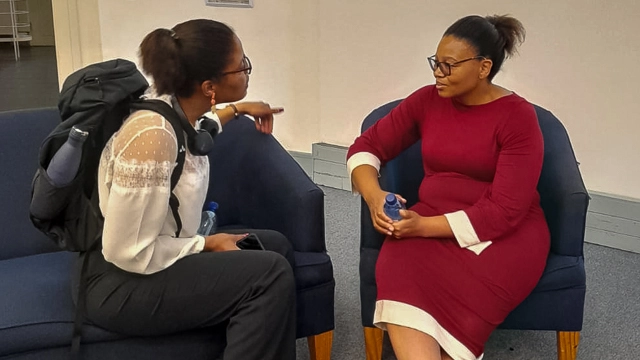
Rhodes University students respond in droves to the possibility of international scholarships
A recent international scholarship information session had Eden Grove Blue lecture theatre filled to capacity, showing Rhodes University students' interest in exploring opportunities abroad.
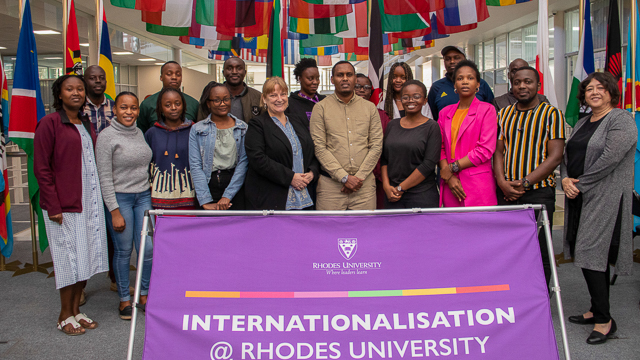
A mission for ignition: Kenya High Commission Education Attaché delegation visits Rhodes University
The Kenya High Commission Education Attaché, Mr Adan Mohamed Ibrahim, accompanied by Ms Ditlalane Mapadimeng, visited Rhodes University recently as part of a national mission.
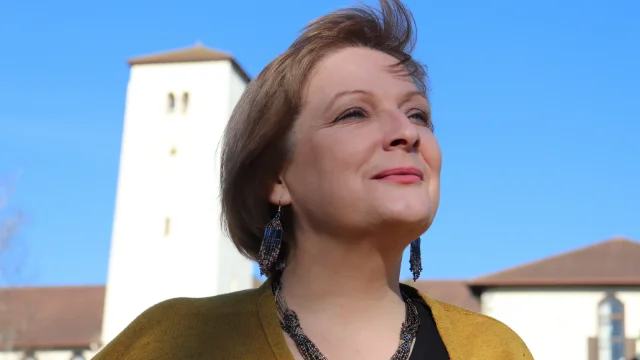
International education is adapting to global uncertainty
In an ambitious closing plenary of the 24th annual International Education Association of South Africa (IEASA) conference entitled ‘Around the globe in 60 minutes’, leaders from eight member associations of the Network of International Education Associations (NIEA) reflected on how the current global, regional and national geopolitical and economic contexts were impacting on higher education and the internationalisation of higher education.
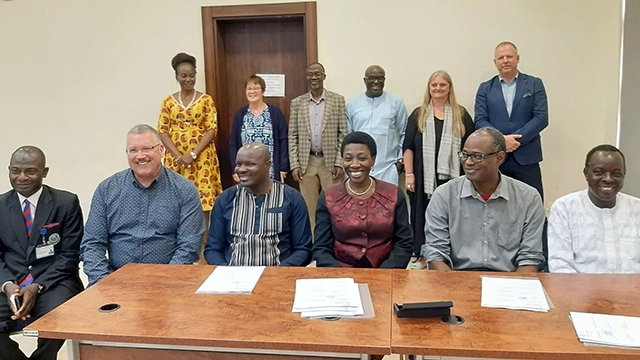
University of Bayreuth and four African universities continue forward-looking cooperation in the Cluster of Excellence
The University of Bayreuth and four African universities will continue their successful cooperation in the Cluster of Excellence "Africa Multiple" in the next three years. High-ranking representatives of the five partner universities signed an agreement to this effect today in Lagos. The University of Lagos (Nigeria), Moi University (Eldoret, Kenya), Université Joseph Ki-Zerbo (Ouagadougou, Burkina Faso) and Rhodes University (Makhanda, South Africa) will thus continue to strengthen and advance joint projects in the fields of research and knowledge transfer with their "African Cluster Centers (ACCs)".

UK work visa for elite graduates is exclusive and based on flawed assumptions
The UK government’s announcement of a new work visa option aimed at attracting top graduates has elicited some backlash because the list of eligible institutions features no universities from Africa, Latin America or South Asia. The Conversation Africa’s Nontobeko Mtshali asked Orla Quinlan, Director of Internationalisation at Rhodes University in South Africa, to share her thoughts on the implications such visa programmes have for international integration and intercultural efforts in higher education.

Rhodes University discusses enabling intra-Africa academic mobility with the EU
As Rhodes University increasingly engages with intra-Africa mobility programmes, issues regarding the equivalency of qualifications, credit transfers and joint degrees are becoming more prevalent. A hybrid workshop was recently hosted at the Environmental Learning Research Centre (ELRC), where relevant institutional leads at Rhodes University had the opportunity to share experiences with European Union (EU) colleagues through identifying gaps and sharing lessons from implementing such programmes.
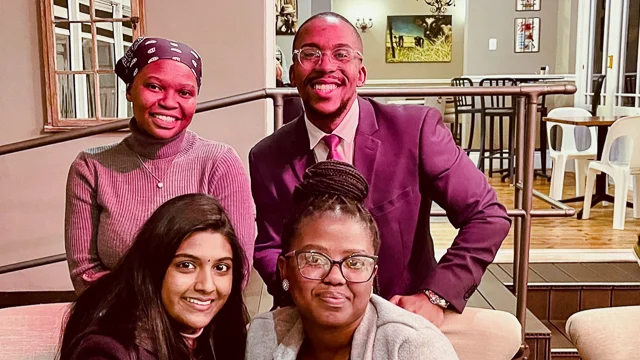
Swiss and South African students share experiences as exchange programme resumes
Rhodes University has well-established mobility programmes with Pädagogische Hochschule PHBern and Pädagogische Hochschule Luzern in Switzerland. The programme allows Swiss education students to spend six months to a year at Rhodes University on a credit-bearing study abroad experience. In return Rhodes University Bachelor of Education degree (BEd) and Postgraduate Certificate in Education (PGCE) students get the opportunity to do a component of their teaching practice in Switzerland.
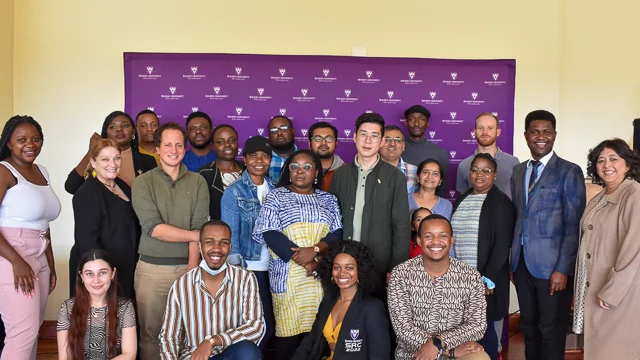
Postdocs gather to end International Week on a high note
Concluding Rhodes University's International Week (23 May-28 May) activities was the Postdoc Story Circles and Brunch Reception at Steve Biko Dining Hall on 28 May 2022. The Postdocs trickled in and began networking just before the official opening by the Director of Internationalisation, Ms Orla Quinlan.
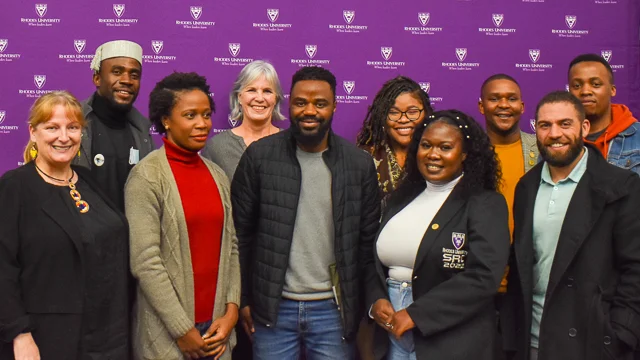
International postgraduate panel on the benefits and challenges of studying in South Africa
In collaboration with the Centre of Postgraduate Studies (CPGS) at Rhodes University, the International Office recently hosted a postgraduate panel discussion titled, "Choices, benefits and lessons learnt from educational migration".
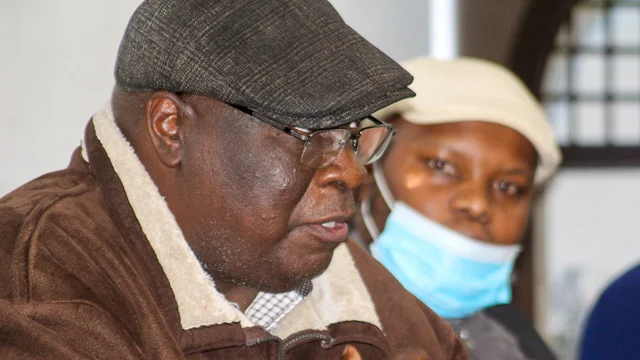
A continent in crisis: Rhodes University academics discuss how the Ukraine-Russia conflict will impact Africa
The Ukraine-Russia conflict has not only devasted many parts of Ukraine but is also having ripple effects throughout the world. The challenges it presents to Africa are particular to its vulnerabilities. At an event hosted by the Internationalisation Office, the Law Faculty, and the Africa Centre, academics from Rhodes University discussed how the war would affect the African continent.
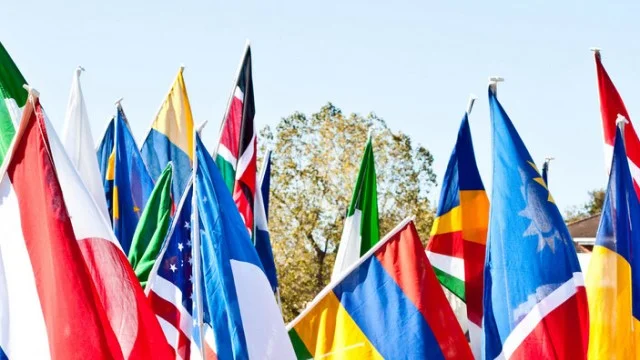
Rhodes University Internationalisation Office announces eight deserving award winners
The Rhodes University Internationalisation Office announced four individual and four collective Internationalisation Awardees during its International Week.
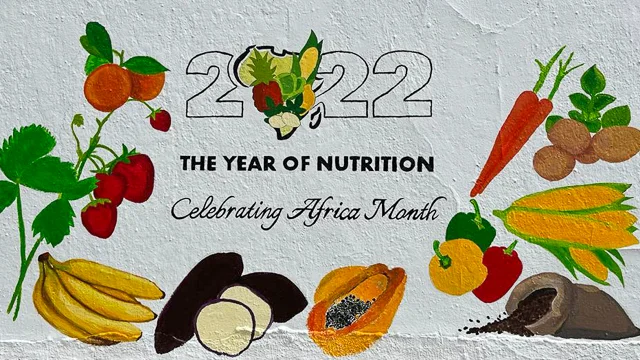
International Office launches food drive to raise awareness about nutrition in Africa
As part of Africa Month this May, the Rhodes University International Office has been hosting several activities during its International Week, running from 22 to 28 May. The Office has been raising awareness about nutrition and food security, the African Union’s theme for 2022, through a Makhanda-wide collaborative food drive.

How can internationalisation regain momentum in South Africa?
It is mandatory for each South African institution to develop its own policy and plan on internationalisation two years after the Policy Framework for Internationalisation of Higher Education in South Africa was published on 6 November 2020, and at a time when international student numbers are decreasing.

South Africa’s universities are adopting an international lens: why it matters
South Africa’s Department of Higher Education and Training released a policy framework in 2020 to enhance the sector’s effort towards internationalisation. The Conversation’s Nontobeko Mtshali asked Orla Quinlan to share her insights.
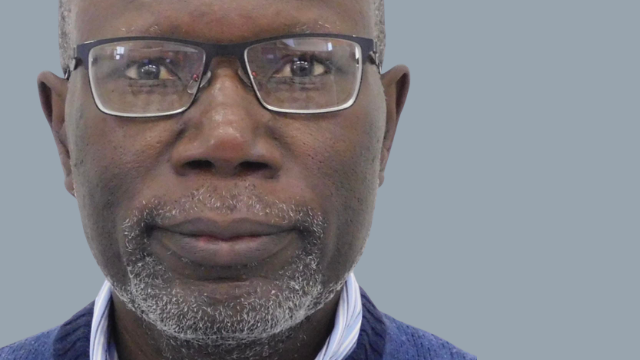
African Languages student writes first-ever ChiShona PhD thesis at Rhodes University
A PhD student in the African Language Studies Section in the School of Languages and Literatures, Mr Ignatius Mabasa, has been awarded a PhD for the first-ever thesis written in ChiShona at Rhodes University.
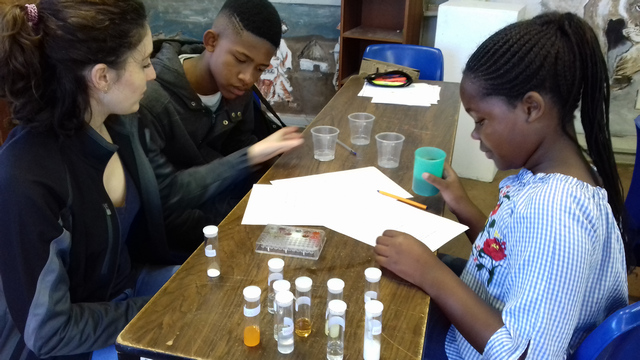
Khanya Maths & Science Club celebrates 21 years of helping local learners
An initiative that started as a small idea in 2000 at Albany Museum under Nonceba Shoba's leadership has grown into a fully-fledged partnership between Rhodes University and GADRA Education.
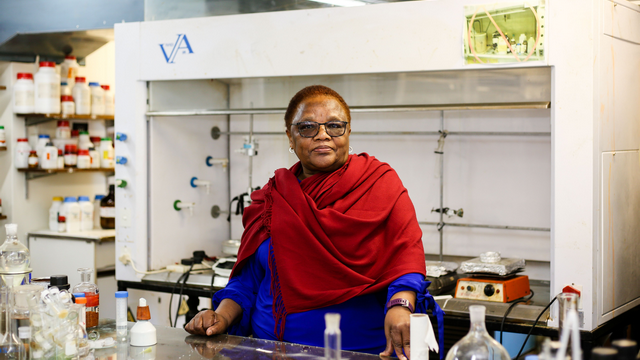
Rhodes University distinguished academic becomes an honorary fellow of the Royal Society of Chemistry
Rhodes University’s Director of the DST Institute for Nanotechnology Innovation, Distinguished Professor Tebello Nyokong, has been named an Honorary Fellow of the Royal Society of Chemistry.
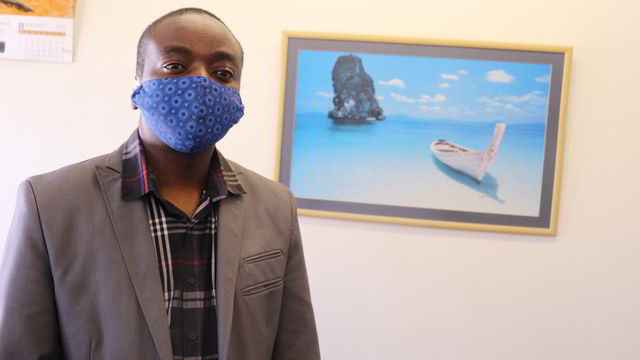
Celebrating World Pharmacists Day
September 25th is celebrated globally, as World Pharmacists Day
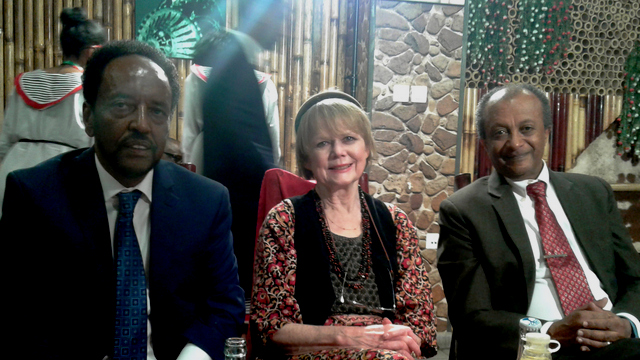
Senior Research Associate’s presentation unites Oromo people’s difficult past with a hopeful future
Senior Research Associate at Rhodes University’s Cory Library, Dr Sandra Rowoldt Shell, recently spoke at the 33rd annual Oromo Studies Association (OSA) conference, which was held on ‘home ground’ for the first time in history.
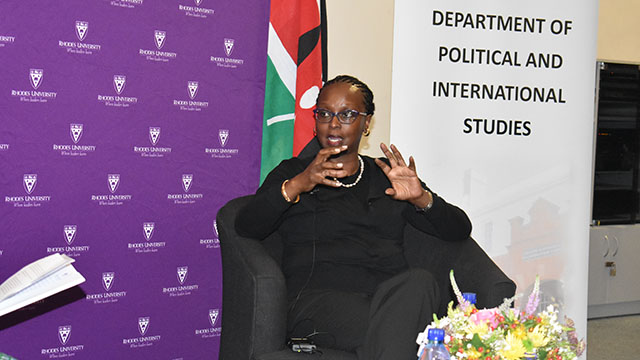
Kenya’s road to democracy
On 15 May, the Politics and International Studies department at Rhodes University, in association with the East African Society (EASoc), hosted a dialogue with the Kenyan Ambassador to South Africa, H E High Commissioner Jean Kamau
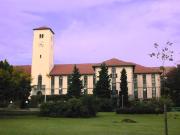
Update for International Students
Dear International Students, following your queries, here are some further clarifications..

Important Information for International Students
The International Education Association of South Africa (IEASA) received a Directive from the Minister of Home Affairs yesterday evening.

Student wellness and care
The Student Wellness Section would like to reassure and remind students of the available services and support that is available for any student who is affected in any way by the current difficulties experienced on campus.
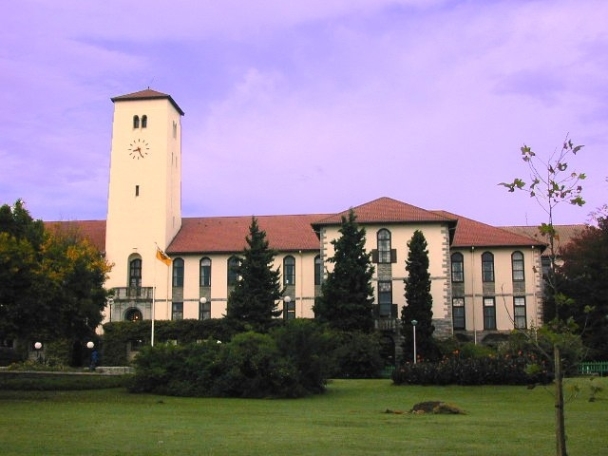
Important Reminders for International Students
Some crucial information for international students
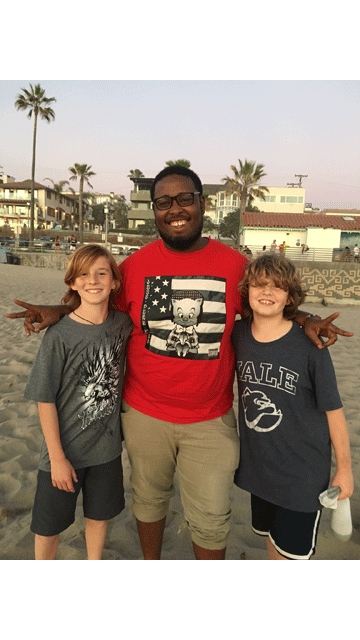
Xolani Mhlanga: from Nelspruit to California in the name of Geology
Professor Tsikos has received the University’s Internationalisation Committee award (2015), yesterday evening, 26 May 2016, for his work in the promotion of international exchange and allied collaborative research
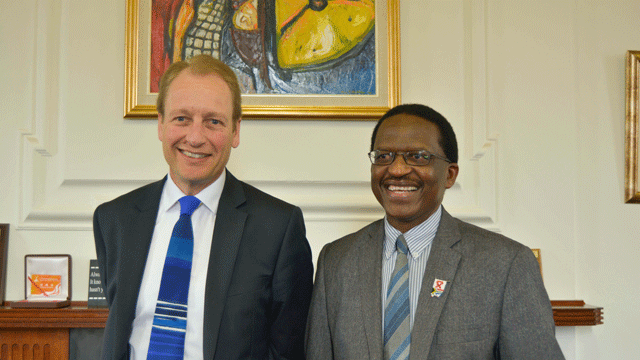
Leicester University's VC visits Rhodes
On Friday 6 May 2016, Dr Sizwe Mabizela, Vice-Chancellor of Rhodes University was delighted to host Professor Paul Boyle, President and Vice-Chancellor, and Ms Suzanne Alexander, Director of the International Office, Leicester University, UK https://le.ac.uk/
African Research Universities Alliance launched
Fifteen universities from eight African countries have launched an alliance of research universities, at the African Higher Education Summit in Senegal’s capital Dakar.
Xenophobic violence is deplorable: Rhodes University condemns the recent attacks on Internationals
The recent news of an upsurge in xenophobic violence in South Africa is deplorable and unjustifiable. As in the past, Rhodes University continues to reject Xenophobia of any kind.
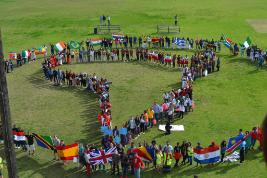
Medical Aid Consultants
Medical Aid consultants are due to come back again on the 7th of March 2016.
Beginning from the Botanical Gardens, Lucas Avenue, moving through High street to the City Hall, and ending at the Great Field
Time: 09:30 for 10:00
Venue: Entrance to the Botanical Gardens
Rhodes was the first University to host an International Parade and we celebrated our fifth one this year. The intention was to create a CELEBRATORY, positive space for people from different backgrounds, cultures, countries and lifestyles to come together.On the day we celebrated the DIVERSITY found in our community!
The Paraders were dressed to reflect the country they were representing with costumes, colours and flags.
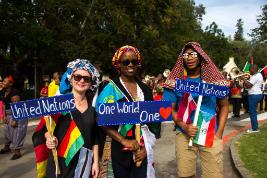

Last Modified: Fri, 26 Jun 2015 18:21:26 SAST
The International Office and the Unit for the Humanities at Rhodes University (UHURU) hosted Mr. Khalo Matabane, a respected South African film maker to screen and discuss his latest documentary Nelson Mandela: the myth and me at Rhodes University as part of the International Week celebrations.
The documentary is a personal odyssey that interrogates the meaning of freedom, reconciliation and forgiveness in South Africa through an imaginary letter to Nelson Mandela and conversations with some of the renowned politicians, public intellectuals and artists from all quarters of the world.
The film was screening at a revitalized political atmosphere in South Africa, where there’s a rise of students’ movement across the country, from UCT: Rhodes Must Fall to Black Students Movement at Rhodes University.
Mr. Manosa Nthunya, one of the speakers on the panel offered a fervent response to the film, linking it with the current political discourse about transformation in contemporary South Africa, ranging from the Rhodes name change to the removal of statues.
In his response Nthunya proposed for an ironic way of engaging with the past arguing that by doing so, one allows him/herself for a deeper reflection on the complexities that inform every life.
“I was therefore deeply troubled that when pushed to the corner, the senate and council at UCT agreed that the statue be removed,” said Nthunywa, “I thought we had crisis in our democracy”
He continued to argue that what he had in fact presumed would have been a responsible response the university could have sent out is that “all students should learn, relentlessly learn how to live with irony”
Nelson Mandela: the myth and me, an emotionally gripping flim, explores and leaves a behind a plethora of dilemmas with no clear or definite answers that confirm what the audience would want to think.
Matabane explained that creating a dilemma for the audience is a deliberate and a striking
thing about art. “I give you the gift of a dilemma and crisis when you’re watching this film because I’m supposed to make you doubt when you’re watching”
Similar to Matabane, Nthunya argued that an appreciation of irony always makes a call for deeper thinking.
“To be human is to be interpolated within contradictory contradictions that constitute the possibility of human existence itself”
In each segment of the three themes: freedom, reconciliation and forgiveness, the director leaves many dilemmas for the audience to think about, but one of the most striking one lies along the forgiveness theme.
“When you have to live with the realities of peace on a day-to-day basis, and you see the level of poverty, you ask: is it worth it? Is the peace worth it? Especially in a society where those who were responsible for the atrocities do not even acknowledge that is it the consequence of their own actions?” explained Matabane.
Describing how he feels about the character that is being explored in the film, Mr. Matabane said he thinks of Mandela as a mirror offering people an opportunity to reflect on human nature.
“I think Madiba offers us an opportunity to reflect on the possibility of human nature, and that indeed we can become better human beings even at a cost of ourselves”
-- by Sanele Ntshingana
Last Modified: Fri, 26 Jun 2015 18:21:26 SAST

UK-SA Newton Fund Update: 2 Calls Open
Two UK-SA Newton Fund opportunities are now open for calls for applications.
Click here for the International Week Programme 2015
Last Modified: Thu, 21 May 2015 11:19:53 SAST
March rejecting xenophobia and all other forms of intolerances and chauvinistic behaviours.
Over the past fortnight our country has witnessed terrible violence perpetrated against fellow human beings from other parts of the continent and world.

IEASA STATEMENT ON XENOPHOBIC ATTACKS
The International Education Association of South Africa (IEASA) adds its voice and support to the growing condemnation of the current wave of xenophobic attacks on non-nationals in South Africa.
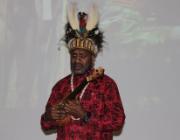
Wenda delivers a moving public lecture
A two time nominee for the Nobel Peace Prize and exiled tribal chief of West Papua, Benny Wenda, delivered a public lecture on 24 February to a packed lecture theatre, decorated with the West Papau flags as Wenda was sentenced to 25 years in prison for the simple act of raising the West Papua flag.
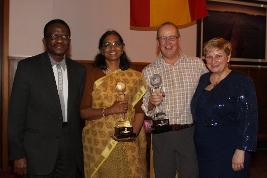
Inaugural Internationalisation Awards: A Success!
The Inaugural Internationalisation Awards took place at the Senior Common Room on Wednesday 5th December 2014. In an event hosted by the International Office the Vice Chancellor presented the Awards to winners Professor Sunitha Srinivas and Professor Roddy Fox.
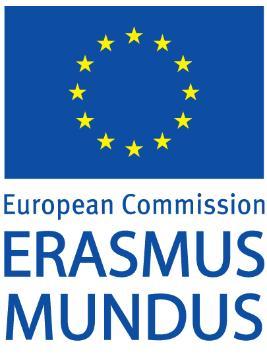
Exciting Opportunities for Postgraduate Studies Abroad
The International Office has been advised that there are exciting exchange and full degree opportunities in Europe for South African post graduate students. We have updated our website to contain as much information as possible about the various opportunities.
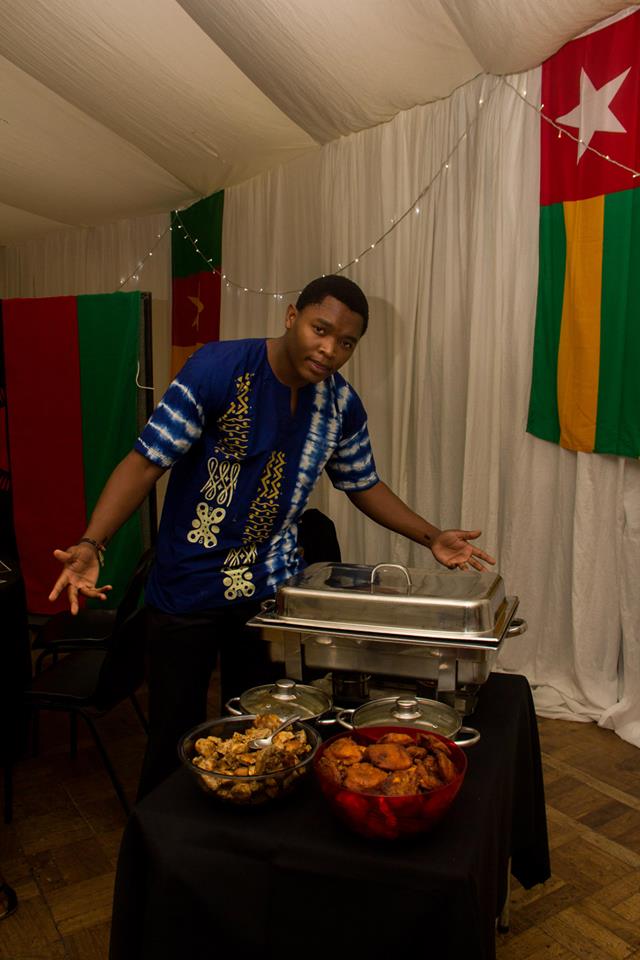
Rhodes Celebrates International Heritage
The International Community at Rhodes University celebrated Heritage Day on September 24th. As part of the commemorations, Show Me Your Roots was held at the Great Hall.
Describing the two months he spent in Grahamstown as part of the Mellon Writer in Residence fellowship at Rhodes University as having been amongthe richest, most energizing and rewarding of his adult life, writer, poet and editor Denis Hirson brought an international flavour to his contributions at Rhodes.
Drawing on an incorporating the expertise of international scholars formed a central aspect of Hirson’s activities during his time at Rhodes, and is reflected in the diversity of the content he exposed his students and audience members to between August and July 2014.
Hirson has been a regular visitor to Grahamstown since leaving South Africa for France at the age of 22 in 1973 but hadn’t experienced this level of engagement with the larger community on any of his previous trips. Despite having been offered the possibility of doing writing residences in several places outside of South Africa, this was the first Hirson accepted, somewhat sceptical that any writing would come of it. Hirson wrote, taught, was involved in several public events including the launches of two books, and participated in various ways in the literary life of Grahamstown, all with a distinctly international flavour.
During his time at Rhodes Hirson participated in various ways in the Masters Programme in Creative Writing under the aegis of the Institute for the Study of English in Africa (ISEA), presenting two seminars. The first of these was on the different stages of the relationship between a writer and his or her work, beginning with intimate words to be shared with friends, ending with the impersonal contract that can be drawn up with both an unknown reader and a publisher. This seminar was illustrated with prose by various writers including Kafka, Jean Giono, Carson McCullers and Sylvia Plath, and poetry taken from the recently published anthology Hirson edited, titled In the Heat of Shadows, South African Poetry 1996-2013, including work by Antjie Krog, Karen Press, Mxolisi Nyezwa, Gert Vlok Nel, Ingrid de Kok and Rustum Kozain.
In the second seminar Hirson discussed the relationship between poetry and rites of passage, notably those concerning birth, puberty, marriage and death, asking, among other things, why it was that a poet should be called upon to find words for these occasions. Here Hirson drew on texts by Antjie Krog, Adrian Mitchell, Bob Dylan, Khalil Gibran, Vonani Bila and Diana Der-Hovanessian and students were asked to write poems from both personal and impersonal perspectives on birth, love and death.
Hirson participated in two sessions during which students of the MA in Creative Writing course prepared and then gave feedback on the writing workshops and public readings that they themselves had been asked to run in an institution of their choice, out in the community of Grahamstown or one of its townships.
Together with Robert Berold, coordinator of the MA in Creative Writing course, Hirson prepared and participated in a bilingual reading and subsequent discussion of Martiniquan Aimé Césaire’s Cahier pour un retour au pays natal/ Notebook for a Return to my Native Land, an event which gathered lecturers and students of the Politics, English and French departments as well as the Creative Writing programme.
During Berold’s poetry circle, which Hirson attended three times, a diverse audience read and discussed the work of Césaire, the Russian poets Osip Mandelstam and Vladimir Mayakovsky, the Greek poet George Seferis, the American poet Sherwood Anderson.
Hirson also gave a lecture on contemporary South African poetry to first year English students, along with a brief reading, and initiated and participated in an evening of tribute to Nadine Gordimer, along with Dr. Deborah Seddon, Sue Marais, Professor Emeritus Malvern van Wyk Smith and Robert Berold.
Hirson has taught in one way or another since he started working in Johannesburg in the 1970s, but he noted a “singular aspect to the work with the Rhodes students, particularly those of them involved in writing”. “They themselves, like their teachers, were in contact with the energies of the local environment, plugged in, as it were. For me, this added to the density and intensity of what happened during the seminars and readings. When we discussed Césaire, for example, there were immediate links made between his affirmation of identity and ability to speak in poetry of the concrete details of poverty, and similar challenges for South African writers,” Hirson said. Following the seminar on rites of passage, where participants raised questions of birth, love and death, several of the poems the students wrote involved a connection with the turbulence, and pleasures, of the world immediately around them.
Hirson believes this might explain the impression that his teaching activities gave him unusual, accelerated access to what was happening in his local environment and indirectly fuelled his own impulse to write, culminating in more than 30 typed pages of poems and prose which he has taken back to France. Hirson’s residency coincided with the National Arts Festival, which increased his exposure to “what was happening in the country, not least of all since in many cases the accent of these events was placed on social relevance”.
Hirson also participated in a colloquium on the teaching of creative writing, the first of its kind ever to be held in South Africa. Among the participants were several people whom Hirson had already been involved with during his stay, including several teachers on the MA in Creative Writing course, Vonani Bila, Stacy Hardy, Anton Krueger, Kgebetli Moele, and Lesego Rampolokeng. Other contributors, such as Noy Holland from the University of Massachusetts, Jean Mcneil from the University of East Anglia, and Paul Munden of the UK National Association of Writers in Education as well as the East Rand poet and community teacher Angifi Dladla, all stretched the colloquium in striking ways beyond the universities and beyond South Africa. “The combined effect of their contribution to the colloquium only confirmed the degree to which my stay had been enriched by the intellectual micro-climate surrounding this course,” Hirson said.
Last Modified: Tue, 11 Nov 2014 16:14:35 SAST

Ethno-Entrepreneurs Responsible For Nigeria’s Divisiveness, says Professor Akpan.
Scholars gathered at Rhodes University in South Africa argue that education reform in Nigeria could reduce ethnic tensions.
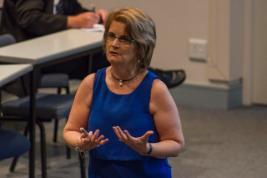
Distinguished Visiting Professor Beverley Glass Gives Public Lecture on The Effects of Light on Drugs
Speaking on Tuesday evening, 16 September, Distinguished Visiting Professor Beverley Glass explains her research to a public audience...
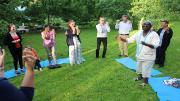
Where leaders learn together
Dr Kenneth Ngcoza, Deputy Head of the Education Department, Prof Michael Joseph and Prof Esther Ramani attended Summer University in Russia in July.
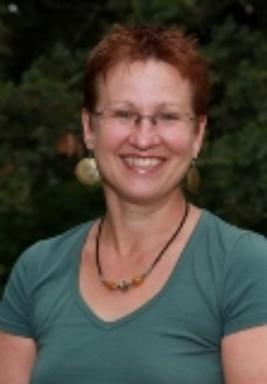
EC leads in human rights litigation
SOME of the most important and extraordinary innovations in socio-economic rights litigation were pioneered in the Eastern Cape, says internationally renowned law Professor Sandra Liebenberg.
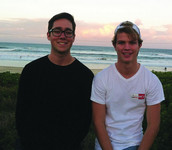
Living Like Locals While Abroad
I seek comfort in every aspect of my life. I surround myself with people and places that comfort me no matter where I am in the world.
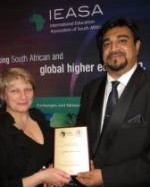
Engaging with the world
The International Office recently awarded an International Education Association of South Africa (IEASA) Golden Key award for Best Practice in Developing a Comprehensive Internationalisation Strategy.
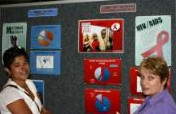
Rhodes marks World Day of Social Justice
“Never doubt that a small group of thoughtful, committed people can change the world. Indeed, it is the only thing that ever has.”
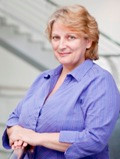
South Africa benefits from international citizens
Rhodes University International Office has issued a strong statement against the xenophobic attacks that took place recently in some provinces in South Africa such as Johannesburg.
.jpg)
Applications for Exchange Leicester University (second semester 2018)
Applications for Exchange Leicester University (second semester 2018)
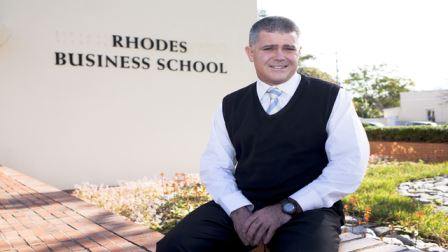
Rhodes Business School launches partnership with Montpellier Business School
A visionary collaboration between the Rhodes Business School and the Rhodes International Office has secured a partnership between the Rhodes Business School and Montpellier Business School (MBS, France) to facilitate Faculty and student mobility and exchange
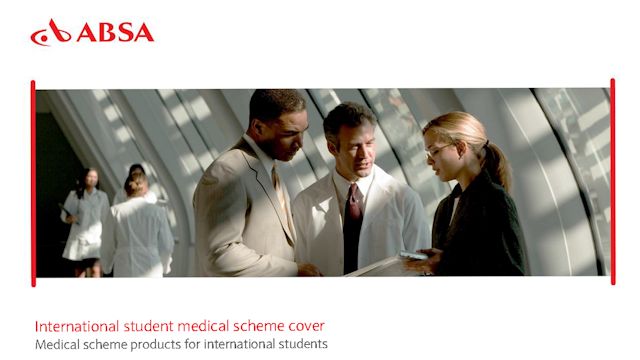
ABSA International student medical scheme cover
One of the key issues higher education institutions face is the requirement imposed upon institutions by legislation governing the admission of international students. This legislation requires that each year every international student must have full medical cover for the entire current academic year before an institution may register such student.